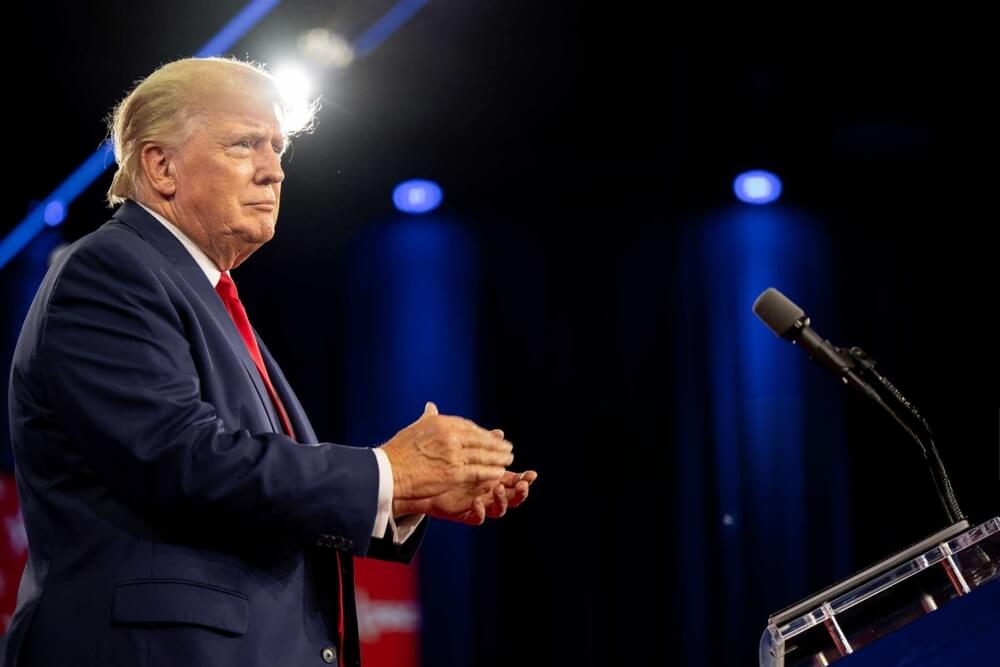Although he is just over a month away from taking office as President of the United States, Donald Trump has already managed to destabilise one of the traditionally most stable Western democracies and his first neighbour, Canada.
Trump is pleased with the split in the Canadian government following the sudden resignation of Chrystia Freeland, the finance minister, one of the deputy prime ministers, and the most influential figure in the cabinet alongside the prime minister.
"Her behaviour was totally toxic, and not at all conducive to making deals which are good for the very unhappy citizens of Canada," Trump wrote on social media.
With this, he continued to belittle Canada and its leadership after he recently jokingly recommended to Prime Minister Justin Trudeau that Canada become the 51st US state, referring to the Prime Minister as "governor."
Furthermore, Trump believes that 40 million Canadians are "unhappy" and has hinted that his forthcoming term should not only serve as "salvation" for Americans but also for their neighbours to the north.
The crisis already existed before Trump
Trump is not the reason for the rare political turmoil in Canada, as both Prime Minister Trudeau's liberal government and Trudeau himself have long experienced a decline in popularity and a very low approval rating.
Canada's youngest PM, who started his term in 2015 with more than a 65% approval rate, now has a little over 25% and numerous problems even within his own party.
But Trump has certainly sharpened the divisions that already existed, taking the political crisis in Canada to an even higher level and likely accelerating the outcome that will come with the election.
The issue of tariffs on exports to the US is at the centre of Trump's contribution to Canada's political crisis
Parliamentary elections should take place by October of next year, but the crisis resulting from the conflict between the two most powerful individuals in the government almost certainly calls for snap elections.
The issue of tariffs on exports to the US is at the centre of Trump's contribution to Canada's political crisis. His announcement that, once he moves into the White House, he will impose tariffs of 25% on all goods from Canada and Mexico if they do not reduce the drug smuggling and refugee inflow to the US has divided Canadians over how to respond to the clearly stated threat.
Trudeau's emergency trip to Florida for a meeting with Trump regarding the tariffs was the catalyst for the resignation of Finance Minister Chrystia Freeland, who apparently saw the move as defeatist.
Snap elections
The departure of Trudeau's most important associate, which is similar to the resignation of the US vice president under the American model, significantly increases the likelihood that Canada will enter a general election process well before October.
Both Ms Freeland's resignation and the firm stance exhibited by PM Trudeau appear to be key campaign issues for the pair. In particular, both say they want to stay in politics and participate in the election to position themselves as potential leaders within the liberal camp.
"Everything is spiralling out of control. We simply cannot go on like this" - Pierre Poilievre
Research indicates that liberals are unlikely to achieve success in the forthcoming elections, since their deficit behind the opposing conservatives is consistently in double digits.
Expectations and fear of Trump's new mandate and the potential impact on the economy are only exacerbating the leadership crisis.
"Everything is spiralling out of control. We simply cannot go on like this," said Pierre Poilievre, leader of the opposition Conservative Party of Canada, which is calling for extraordinary early elections as soon as possible.
Buying time does not suit Trudeau
Prime Minister Trudeau has room for buying a little time, for example, until the end of January and the new session of Parliament, as well as several procedural options to extend the life of his government.
However, the finance minister's resignation has exacerbated a longer political crisis, leaving less room for manoeuvring and making snap elections more likely. Regardless of the timing, they will undoubtedly take place at the beginning of Trump's term—a time when he is likely to make the toughest decisions, possibly including tariffs on imports from neighbouring economies.
 Canadians will see the Trump factor as crucial to the forthcoming election, regardless of its timing
Canadians will see the Trump factor as crucial to the forthcoming election, regardless of its timing
Therefore, Trudeau and his party believe it is ineffective to postpone the election and buy time, as this will only serve to prolong the trend of declining confidence. With the resignation of Ms Freeland, it will become even more convincing, both in terms of speed and numbers.
Canadians will see the Trump factor as crucial to the forthcoming election, regardless of its timing. His approval rating among Canadians has more than doubled compared to when he was president, and only ten per cent of Canadians wanted someone like Trump in their country.
This has undoubtedly fuelled Trump's belittling of the government and Prime Minister Trudeau and, given his declining ratings, demonstrated the future US president's desire to influence the political outcome with his northern neighbour.